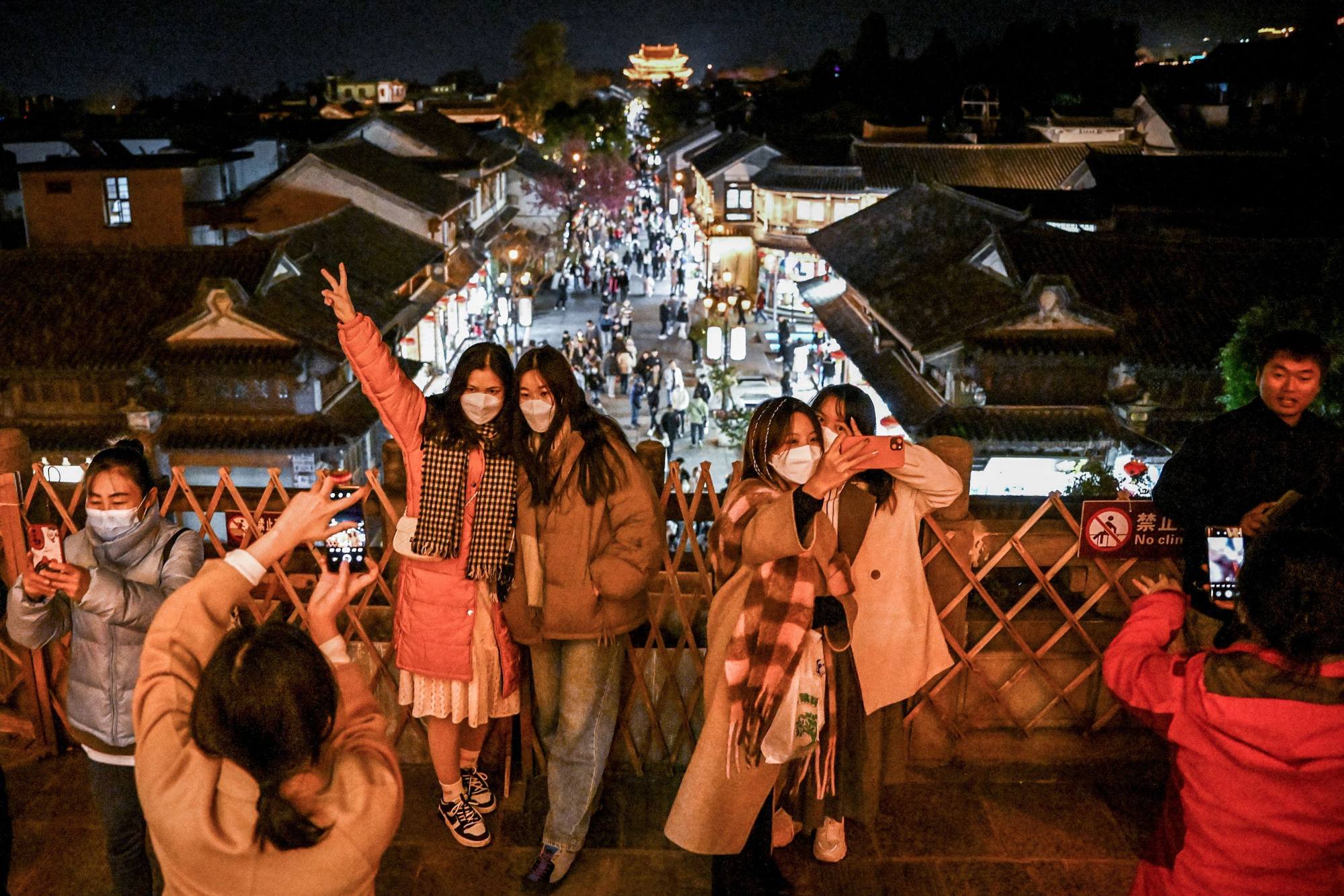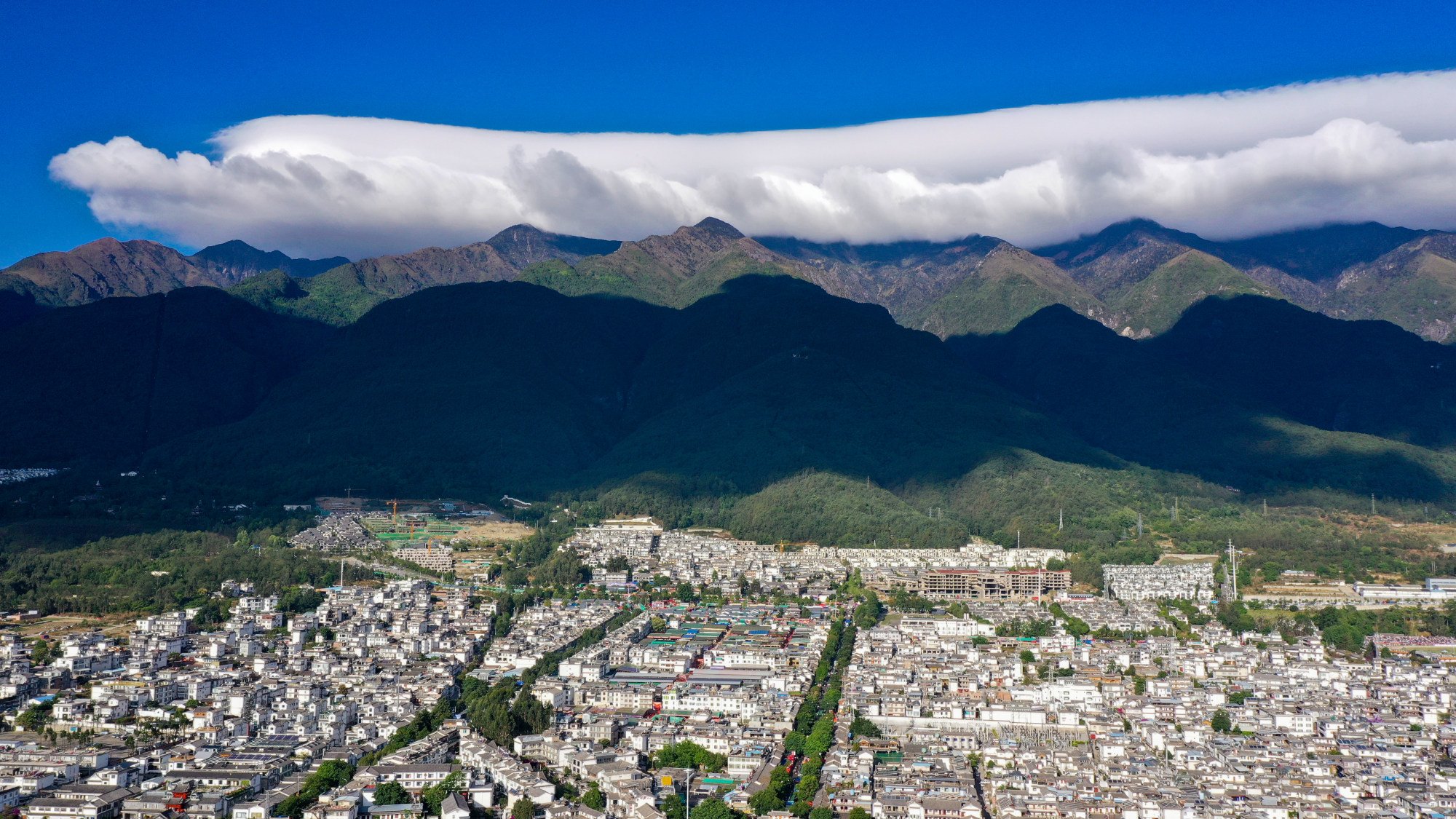
Why digital nomads are flocking to the Chinese city of Dali – nicknamed ‘Dalifornia’ – but is the good life as golden as promised?
- The atmosphere in Dali has invited comparisons to California, in the US, for its anything-goes reputation, mild climate and burgeoning tech community
- The Chinese city has become a refuge for digital nomads and burned-out workers looking to ‘lie flat’ – but how long can its status as ‘Dalifornia’ last?
Whenever John Wang, a 40-year-old Chinese tech entrepreneur, hears the song Hotel California by the Eagles, he cannot help but sing along – with one minor modification. During the chorus, Wang and his friends like to belt out their welcomes to the “Hotel Dalifornia” instead.
The atmosphere there has invited comparisons to California, in the United States – or at least to the California that exists in the popular Chinese imagination.

Its natural landscapes and historic architecture have made it a haven for backpackers and other tourists since the 1980s. The city’s early popularity among international visitors and the cultivation of cannabis in Yunnan province, which spurred the local marijuana market until authorities began cracking down in the 2000s, have contributed to an anything-goes reputation.
That, combined with a burgeoning tech community and a mild climate, inspired the “Dalifornia” nickname among locals.
Wow, what a view! China’s ‘digital nomads’ seek paradise while on the clock
Wang, who first heard the tribute to the Golden State after he moved to Dali in 2020, liked it so much that he recruited two friends to help spray paint “Dalifornia” on an abandoned wall in town.
“When Covid arrived, it was like the whole world changed,” said Wang, who closed his start-up in Shenzhen before he relocated. “Dali was like the last bastion of idealists, where I felt like I could really breathe freely.”

Joyce Zhao, a 33-year-old jewellery designer, moved from Beijing to Dali in February with her husband and her pet corgi. She says the “chill” atmosphere there reminds her of California – she once visited San Francisco for a few days – but that she is not used to encountering so many young people who do not appear to care about work.
The yearning to step out of the fast lane is reflected in the virality of Meet Yourself, a Chinese drama released in January that garnered billions of views in its first few months.
In the 40-episode series, a burned-out career woman in Beijing resigns and moves to Dali, where she falls in love with another professional, who abandoned his high-paying job to return home.
Cash for tourists: Hangzhou to reward travel agencies for attracting foreigners
Zhao’s husband, a computer programmer from the US whom she described as a “Dali superfan”, paid for a streaming subscription just to see how the show depicted the city.
Zhang Shijian, the owner of a real estate agency in Dali, said inquiries to rent or buy a home doubled to 5 or 6 per day after pandemic restrictions were lifted in December. Many of those were young people looking to “lie flat”, as urban youth unemployment has reached record highs, he said.

Chen Qin, a Chinese official from one of the locations where Meet Yourself was filmed, told Chinese media that the television show and efforts to promote rural development had helped boost local employment and entrepreneurship.
“The Chinese countryside has become a place of healing for those living and working in big cities,” Chen said.
A request to Dali’s media office for comment on the city’s popularity and its economy was referred to the Yunnan office of foreign affairs, which did not respond to a list of questions by the time of publication.
Chinese tourists are ‘eager to travel’: where they’ll go and for what
Wang Ruoxi, a 19-year-old student in Guangzhou, says she was drawn to Dali by the memory of its scenery from a previous holiday – and social media posts touting cheap lodging. After a month of living under blue skies and white clouds, seeing the lake and mountains every day, Wang wanted to become a digital nomad too.
“Living in Dali was a valuable experience for me. It changed my plans for my future life,” she says.
But Ji Yanhong, a 22-year-old student, came to a different conclusion after she fled a lockdown in Guangzhou and spent a couple of months in Dali. While she enjoyed her remote study, it reaffirmed her interest in cities like Guangzhou – with a population of more than 18 million – and the career contacts they provide.
“For me, Dali is not a destination, but more like a rest stop,” Ji says. “It will make people lose their fighting spirit.”
I just hope that every project or capital or person that comes to Dali has the right intention and is willing to grow sustainably
In 2022, Dali organisers put together a Web3 conference called “The Summer of Tile Cats”, a reference to the gargoyle-like feline statues that decorate clay rooftops around the city.
Zhao Huiling, a 33-year-old cryptocurrency venture capitalist in Shanghai, fell in love with Dali after attending the conference in August 2022. She and her husband moved there a month later to open a Mediterranean-inspired restaurant they christened Dalia.
6 tourist destinations that just earned Chinese government’s highest ranking
Work spaces for digital nomads have since cropped up around town, including one down the street from the restaurant called Web3 Playground.
While she is excited to hear residents exchanging blockchain and cryptocurrency ideas, Zhao Huiling says she has reservations about the recent hype and whether the wave of new arrivals will overwhelm the city’s resources, particularly after witnessing the congestion of the Lunar New Year rush.
“I feel like Dali is climbing up to a tipping point,” she says. “I just hope that every project or capital or person that comes to Dali has the right intention and is willing to grow sustainably.”

Shi Beichen, a 38-year-old brand consultant who travelled to Dali in March 2022, has noticed rent and grocery prices rising since he decided to settle there permanently. But he still hopes that more remote workers and freelancers will come to develop tech hubs and businesses.
Scepticism toward unproven technologies ultimately curtailed the Web3 conference in 2022, according to John Wang.
Officials disbanded the event in the name of epidemic prevention, but as participants met in smaller venues around town, police still checked in on gatherings for evidence of cryptocurrency and illegal drugs, he says.

“A lot of people from big cities decided to come to Dali. Once there, they see Dali is great. The mountains, the water, the atmosphere is great. Like-minded people can find each other, right?” Wang says.
“But then you see people doing health inspections and shutting down events. And you realise that Dali, in the end, isn’t ‘Dalifornia’.”

